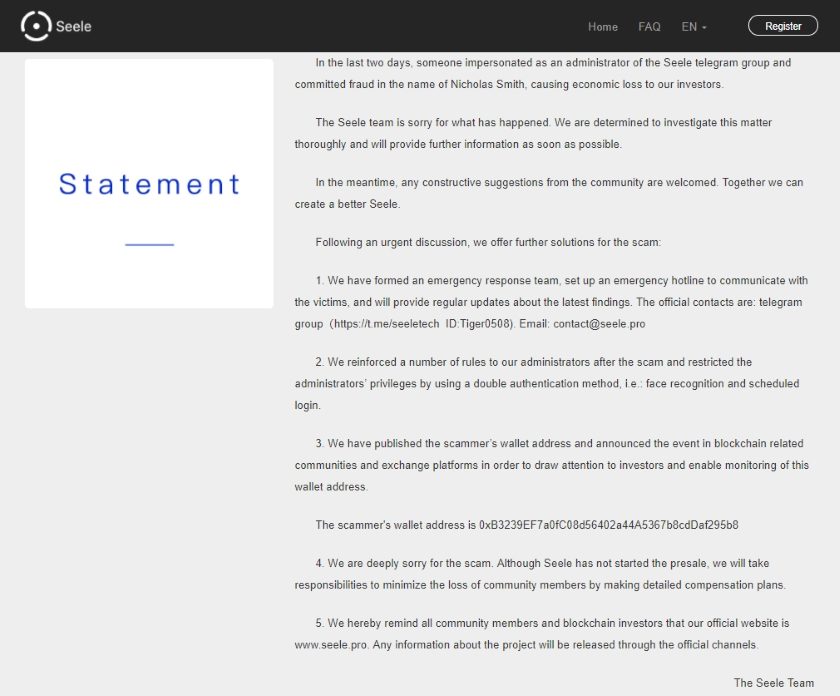A cryptocurrency mining gang is using a function normally found in SLocker Android ransomware to add self-protection and persistence to what Trend Micros is calling HiddenMiner. HiddenMiner abuses the Device Administrator feature, as does SLocker, to remain hidden and active and does this so well it has the ability to either use the device’s resources until it runs out of power or fails due to overheating. And HiddenMiner ensures that it retains its administrative privilege by locking the screen’s device, using a flaw inherent in Android operating systems 7.0 and…
Read MoreCategory: Cybersecurity
Cryptojacking soared by 8,500 percent in 2017
Sweden has seen a surge of cryptojacking attacks, with a growth of 10,000 percent in the last quarter of 2017. This is twice the global growth rate for the same period, and more than the price of bitcoin managed in the whole year! Cybersecurity threats are a growing global concern, and rapid developments in cryptocurrency have made this type of hacking the most lucrative. The increase in cryptojacking correlates with a decline in ransomware, suggesting thieves are moving with the tide as digital currency establishes itself. Instead of stealing your…
Read MoreThousands hijacked websites including government portals to mine cryptocurrency
Over 5,000 websites across the UK and Australia, including government sites, were cryptojacked to force visitors’ computers to mine cryptocurrency. More than 5,000 websites, including government portals in the UK and Australia, fell victim to malware that forces the computers of visitors to unsuspectingly mine cryptocurrency, various media reported. The massive cryptojacking was discovered on Sunday, when UK security researcher Scott Helme was notified by a friend. The latter’s anti-virus program raised the alert about a piece of malware after a visit to the website of the UK Information Commissioner’s…
Read MoreScammers make $5,000 in ETH by impersonating celebs on Twitter
Online scammers have made over $5,000 worth of Ethereum in one night alone, showing how gullible some cryptocurrency users can be. Miscreants achieved this by creating fake Twitter profiles for real-world celebrities and spamming the social network with messages tricking users to participate in “giveaways.” Crooks deceived users into sending a small amount of Ethereum, promising they would receive the sum ten times over as part of the giveaway. All the messages followed the same pattern, even if the sums and Ethereum wallet addresses varied between the fake Twitter accounts.…
Read MoreSeele ICO investors out of $2 million in ETH
Potential Seele ICO investors were recently scammed out of nearly $2 million by impersonators posing as admins, who used the company’s Telegram channel to get them to send their money over before the token sale began. Seele, a blockchain project that describes itself as “blockchain 4.0,” with potential applications in IoT, game assets, fintech, and others, has a technical blurb on its homepage that claims Seele is “powered by an up-scalable Neural Consensus protocol for high throughput concurrency among large scale heterogeneous nodes and is able to form a unique…
Read MorePhishing scam: Possible theft of $1 million in Bee Token ICO
When the Bee Token ICO kicked off on Wednesday, thousands of investors rushed to fund “Beenest,” a commission-free home-sharing platform that aims to disrupt industry heavyweights Airbnb and VRBO. Unfortunately, hundreds of them unwittingly fell prey to an email- and Telegram-based phishing scam targeted at prospective Bee Token ICO contributors. Bee Token has spent the bulk of the past two days warning its ICO contributors about the scams, advising them to ignore direct communications that claim to be from the company and verify the token sale’s contract address on the…
Read MoreSmominru botnet – Over 500000 PCs infected using NSA exploit
2017 was the year of high profile data breaches and ransomware attacks, but from the beginning of this year, we are noticing a faster-paced shift in the cyber threat landscape, as cryptocurrency-related malware is becoming a popular and profitable choice of cyber criminals. Several cybersecurity firms are reporting of new cryptocurrency mining viruses that are being spread using EternalBlue—the same NSA exploit that was leaked by the hacking group Shadow Brokers and responsible for the devastating widespread ransomware threat WannaCry. Researchers from Proofpoint discovered a massive global botnet dubbed “Smominru,”…
Read MoreYouTube ads invaded by hackers to mine Monero
The ads largely arrived on Wednesday and ended up stealing the computing power from victims’ PCs through their browsers. This week, ads over YouTube carried a sneaky surprise: a cryptocurrency miner. The mining software briefly invaded the video platform in an attempt to secretly siphon the computing power from any YouTube viewers who encountered the ads. The culprit? Hackers who decided to abuse Google’s ad network. The bad actors seeded the advertisements with web scripts that’ll run over your browser to mine the digital currency Monero. The ads largely arrived on…
Read MoreEvery keypress stolen by keylogger that was found on thousands of WordPress sites
A new report from researchers at Sucuri reveals that websites are once again being found infected by cryptomining code – stealing the resources of visiting computers to mine for the Monero cryptocurrency. Many web surfers almost certainly don’t realise that the reason that their laptop’s fan is running at full blast is because the website they are viewing is tied up with the complex number-crunching necessary to earn the digital currency. But, in a twist, this particular attack isn’t just interested in mining Monero. While the website’s front-end is digging…
Read MoreOfficial: Coincheck Hacked, $530 Million NEM Missing
According to major Japanese cryptocurrency exchange CoinCheck executives, more than $530 million worth of NEM has been stolen from the trading platform. MineCC, a Japan-based cryptocurrency analyst, reported that during an official public conference, CoinCheck executives admitted that all funds stored in its hot wallet were stolen by an unknown group of hackers. Unlike cold wallets, which are secure and kept offline, hot wallets can be accessed if servers are breached by hackers. As such, the majority of large-scale cryptocurrency exchange in the industry only store a small portion of…
Read More









